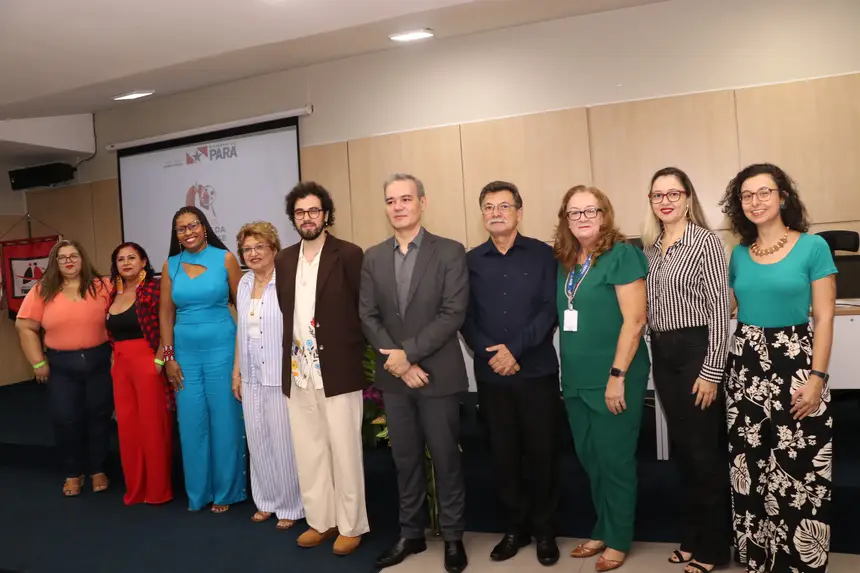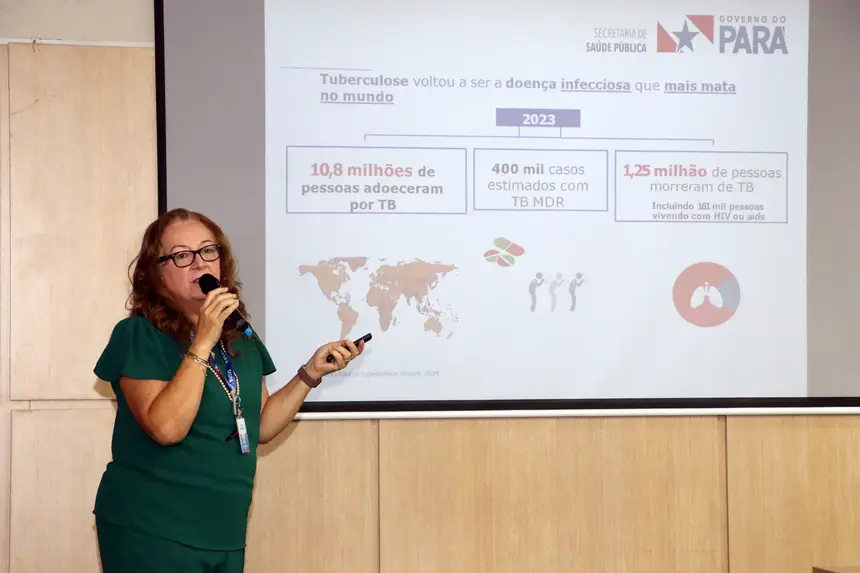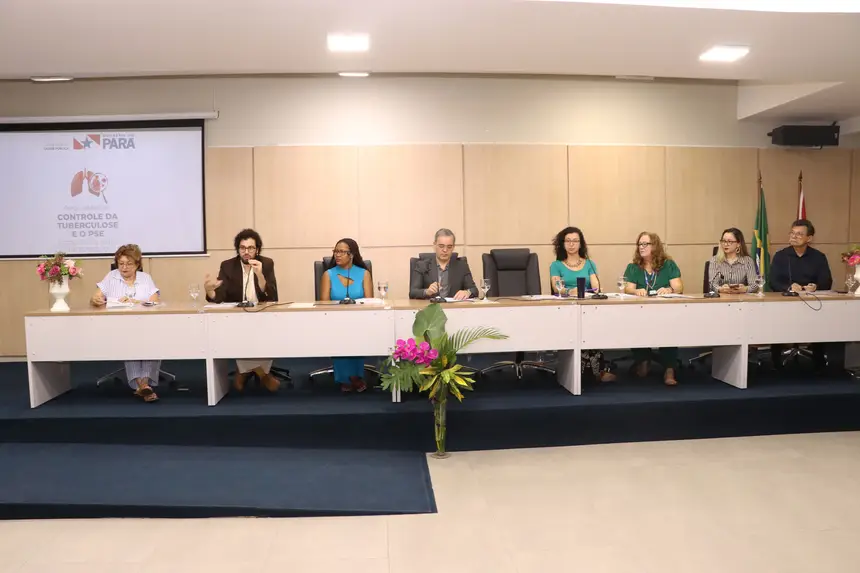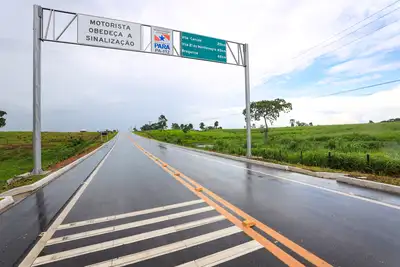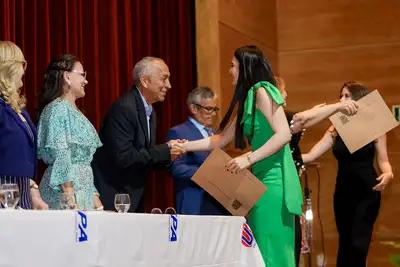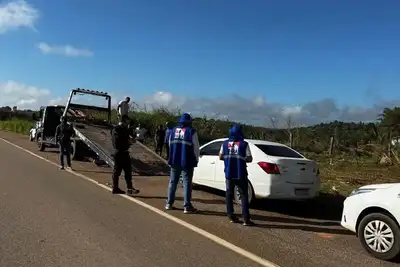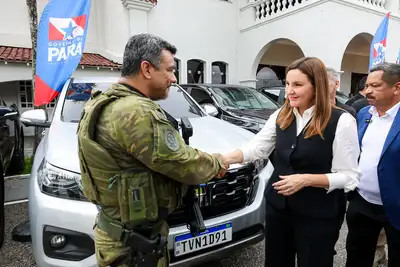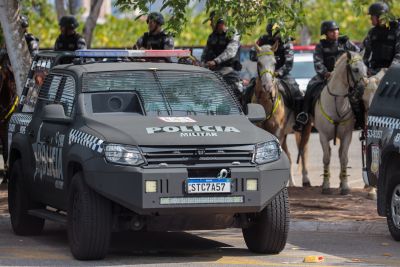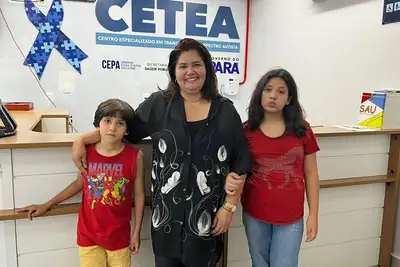Workshop strengthens integration between health and education in the fight against tuberculosis in Pará
Event promoted by Sespa brings together representatives from health and education to build intersectoral strategies aimed at controlling tuberculosis in public schools
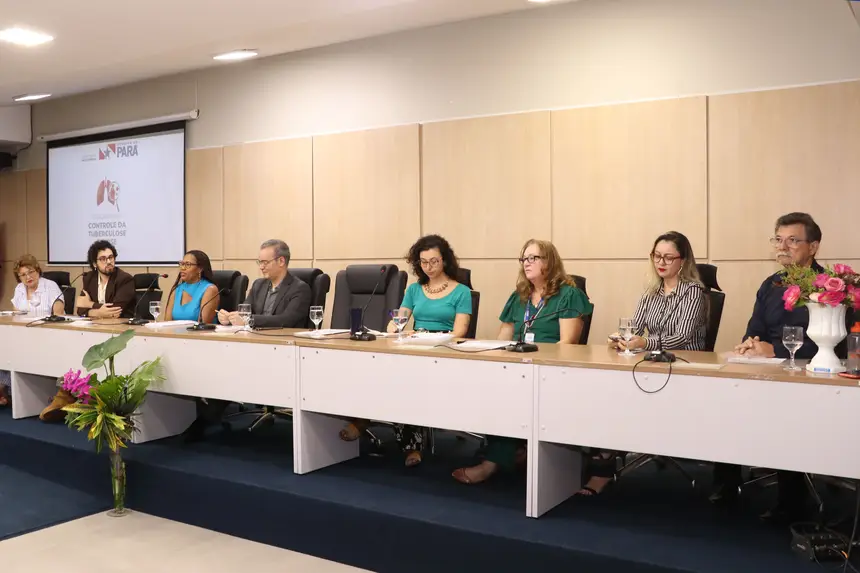
To unite forces between the health and education sectors in combating tuberculosis, the Integration Workshop of the Health in School Program (PSE) began this Wednesday (28) at the auditorium of the State Department of Public Health of Pará (Sespa), focusing on actions to control the disease. The event, which lasts for two days, brings together representatives from the Health and Education departments – both state and municipal – as well as technicians from the Ministries of Health and Education, and members of civil society.
Broadcast live on the YouTube channel of the Council of Municipal Health Secretariats (Cosems), the workshop's main proposal is to strengthen intersectoral coordination through educational initiatives and health promotion in the school environment. The goal is to enhance prevention, surveillance, and control of tuberculosis among students, families, and communities.
The opening ceremony was attended by state and federal authorities, including the Deputy Secretary of Administrative Management of Sespa, Edney Mendes Pereira; the Deputy Secretary of Sespa, Heloísa Guimarães; and representatives from the Ministry of Health, Ministry of Education, Cosems Pará, Seduc, and Undime/PA.
Representatives from the Regional Health Centers (CRS) of the Metropolitan Region of Belém, Marajó I, as well as municipalities considered priorities, such as Ananindeua, Castanhal, Soure, Salvaterra, and Santa Izabel do Pará, are participating in the workshop.
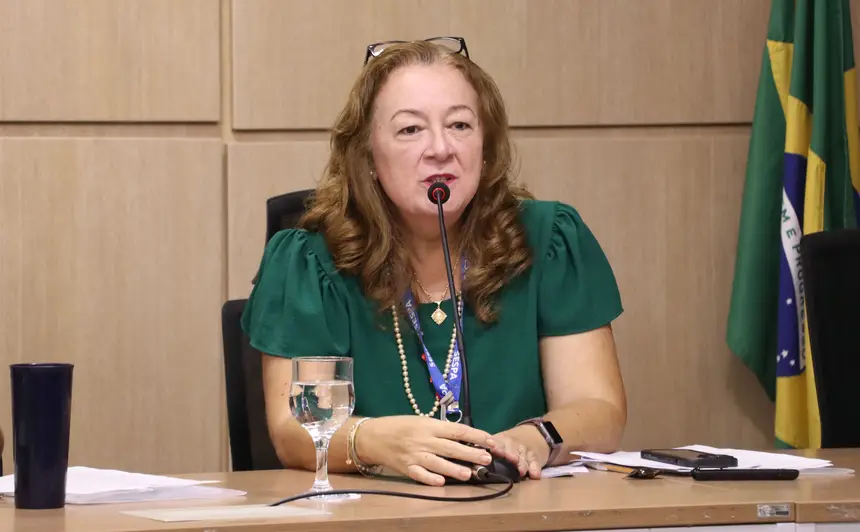
According to the state coordinator of the Tuberculosis Control Program of Sespa, Lúcia Monteiro, the role of the PSE is essential to reach more vulnerable populations and combat the stigma that still surrounds the disease. “The PSE will act as a strategic tool to provide information about tuberculosis to students, families, and communities, using accessible language and educational approaches, combating stigma and promoting knowledge about symptoms, prevention, and treatment. Furthermore, it allows reaching vulnerable populations through schools, facilitating surveillance and actions in hard-to-reach areas,” she explained.
She also highlighted the importance of actions in the school environment as part of the disease containment strategy. “It also contributes to improving ventilation, hygiene, and disease prevention conditions in the school environment, which are important factors in breaking the transmission chain of tuberculosis. And, with direct contact with children and adolescents, it will be possible to strengthen active search and integrated surveillance in indigenous, riverside, quilombola communities, and those deprived of liberty,” she added.
During the two days of the workshop, an Action Plan will be developed to guide the participating municipalities in implementing practical strategies aimed at health education, improving school infrastructure, and early detection of cases.
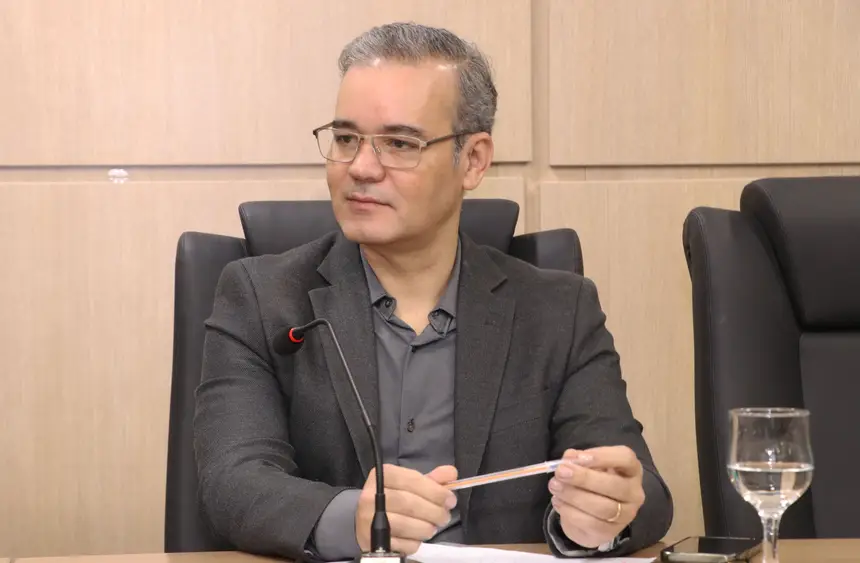
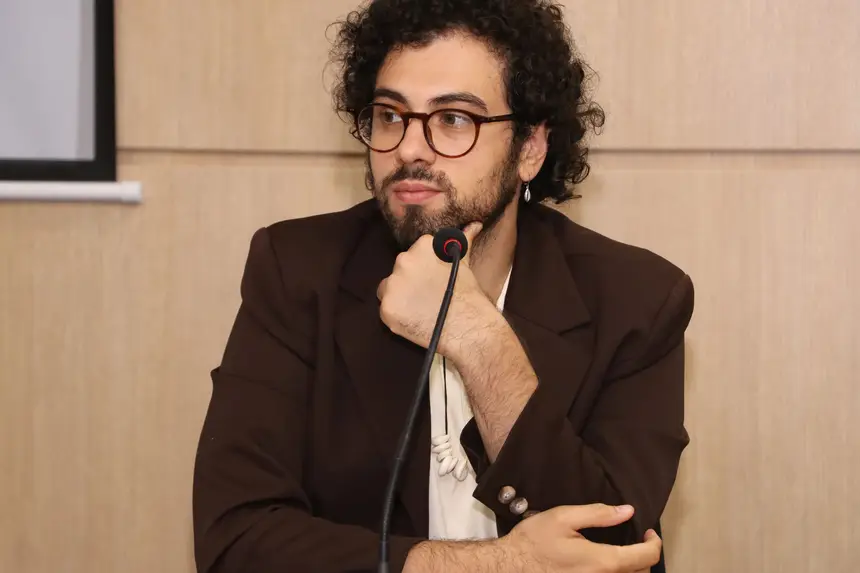
The Deputy Secretary of Sespa, Edney Mendes Pereira, emphasized the strategic role of schools in combating tuberculosis. “The integration between health and education is the most effective way to achieve consistent results in the fight against tuberculosis. With this workshop, we take an important step in building strategies that involve the school as a fundamental space for health promotion and disease prevention. It is a joint effort that will directly reflect on the quality of life of our children and adolescents.”
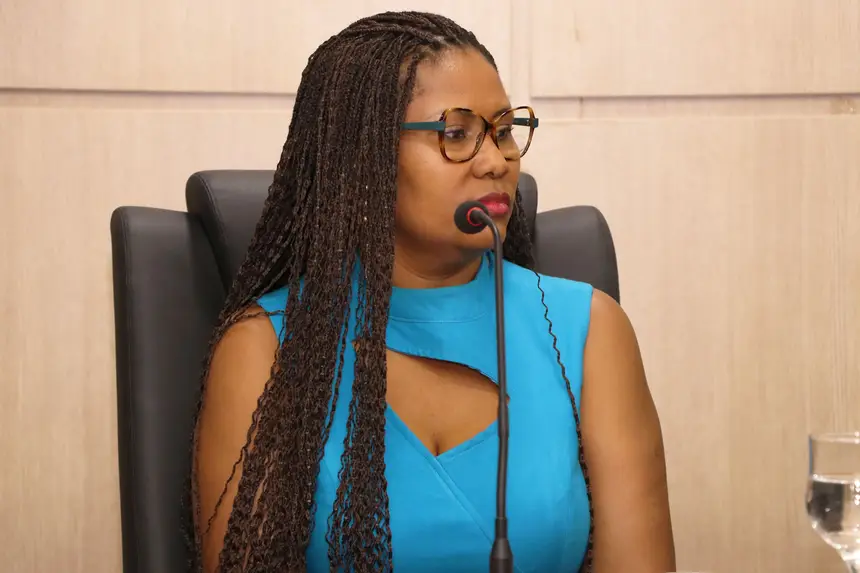
From the State Department of Education (Seduc), the coordinator of the PSE, Adriana Dias de Moura, detailed actions that have already been implemented. “We have been working jointly with Sespa in conducting webinars and coordinating with the Municipal Education Secretariats, promoting the engagement of schools in PSE actions. We also encourage that the topics be incorporated into the political-pedagogical projects of the schools, so that they are addressed in a transversal and continuous manner throughout the school year.”
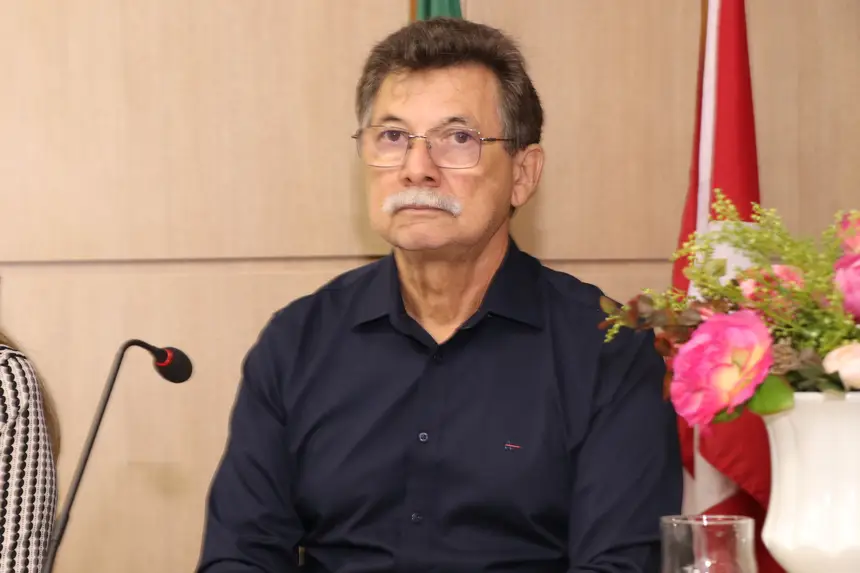
Representing Cosems Pará, Antônio Jorge Araújo reinforced the need for an intersectoral approach to tackle diseases like tuberculosis. “Socially determined diseases, such as tuberculosis, do not end in the health sector. They have causes and consequences that cross other sectors, such as education, food security, housing, and justice. The integration proposed by the PSE is essential to ensure effective and sustainable responses.”
From the Ministry of Education, PSE technician and psychologist Alexander Rodrigues made an appeal for greater coordination between the areas. “Complex problems require complex solutions, and this is only possible when we work together. Each isolated sector can no longer meet the demands of contemporary society. This workshop is a powerful movement of confluence and life production. The school is a meeting point where different paths intersect and can transform reality.”
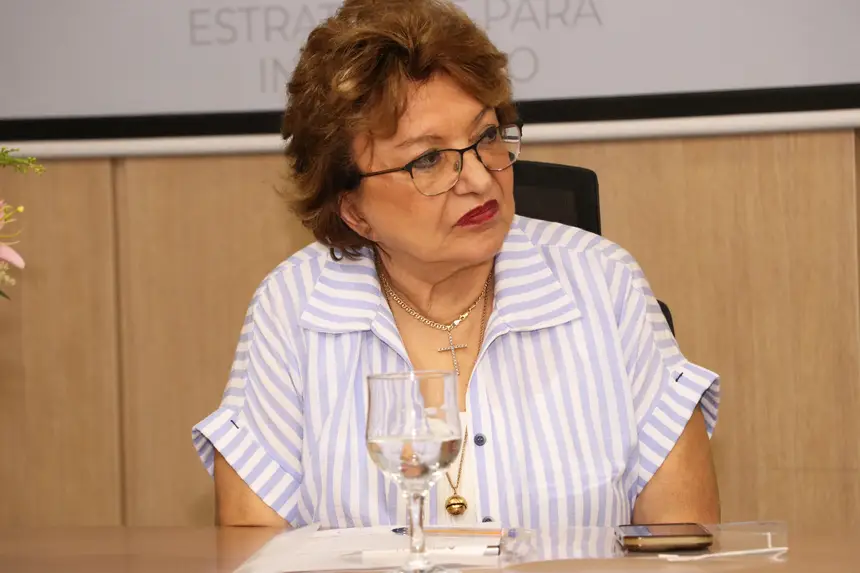
The coordinator of the Ministry of Health, Maria do Socorro Evangelista, highlighted the pioneering nature of the initiative on the national scene. “This initiative is the first in the country that brings together, in an articulated manner, the PSE, the MEC, and the state coordinations of the program. The integration with education will be decisive in bringing information and care to the communities most affected by tuberculosis. Pará is becoming a national reference with this proposal.”
Focusing on joint work and health promotion within public schools, the workshop consolidates itself as a milestone for strengthening integrated public policies in the fight against tuberculosis in the state of Pará.
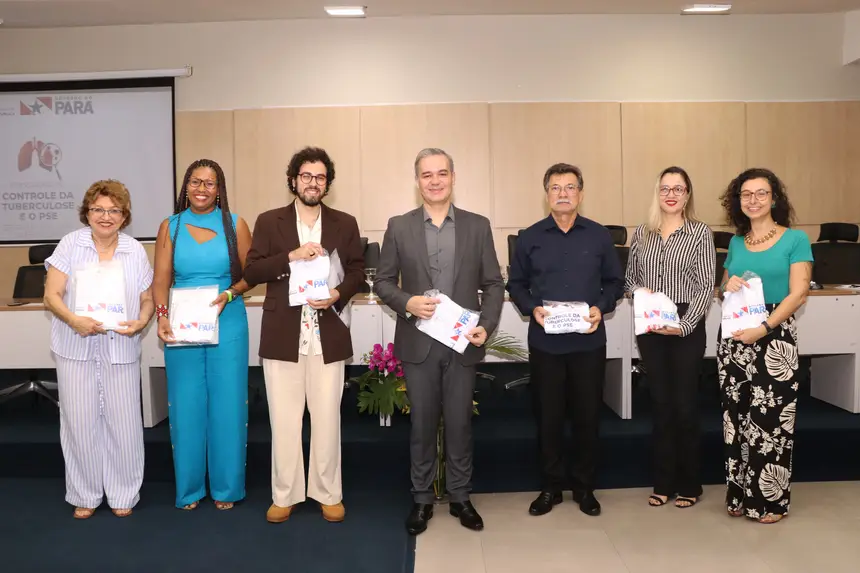
The Integration Workshop of the Health in School Program in Tuberculosis Control actions continues until this Thursday (29), with an intense program focused on exchanging experiences, analyzing the tuberculosis scenario in the state, and collectively building intersectoral strategies. The event is broadcast live across Brazil on the Cosems YouTube channel and includes the participation of representatives from federal, state, and municipal spheres. Check out the complete program:
1st Day – 28/05/2025
• 08h – Reception and registration of participants
• 08h30 – Opening table: SESPA, SEDUC, MS, MEC, PNCTB/MS, CEPCTB, and Social Control
• 09h to 11h – Round table: The Health in School Program and the integration strategy of health and education to achieve the goals of the State Tuberculosis Control Program
• 11h to 12h – Debate
• 12h to 13h30 – Lunch
• 13h30 to 14h30 – Situation of Tuberculosis in the state of Pará
• 14h30 to 15h – Debate
• 15h to 15h30 – The operational situation of the PSE in the state of Pará – SESPA
• 15h30 to 16h – The operational situation of the PSE in the state of Pará – SEDUC
• 16h to 16h30 – Debate
2nd Day – 29/05/2025
• 08h to 12h – Workshop: “Building the action plan to contribute to the elimination of TB as a public health problem, through the Health in School Program in the state of Pará”
• 12h to 13h30 – Lunch
• 13h30 to 16h30 – Presentation of the results of group work
• 16h30 – Presentation of the Joint Action Plan proposal
• 17h – Closing


